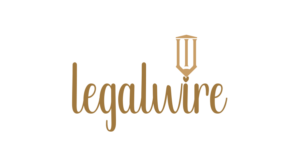By Attorneys Charles James Williams III & Kimberly Raab – Serving Richmond, Chesterfield & Central Virginia
Don’t Let Medical Billing Mistakes Hurt Your Injury Claim
After a car accident, your first thought is likely about injuries, damage, and getting back to normal. But many people overlook one of the most critical steps in protecting their personal injury case — how their medical bills are submitted and paid. It may seem like a small detail, but giving your health insurance information to medical providers (instead of defaulting to auto insurance) could mean the difference between a strong injury claim and a reduced or denied settlement.
Even if the accident wasn’t your fault, always provide your health insurance information to hospitals, clinics, and specialists. Why? Because billing errors can directly impact how much compensation you receive — and how quickly you get the care you need.
Why Medical Providers Often Bill the Wrong Insurance
In the aftermath of a car crash, many healthcare providers automatically ask for your auto insurance. Here’s why:
- They flag the case as “third-party liability”, assuming an auto insurer will cover the costs.
- They bypass your health insurance entirely, despite you having active coverage.
- They believe billing auto insurance will result in faster reimbursementwith fewer restrictions.
Unfortunately, this practice can have negative consequences. “When providers skip health insurance, you could end up with liens, inflated bills, and gaps in coverage,” explains Attorney Kimberly Raab. And those inflated bills can come out of your settlement — not the insurance company’s pocket.
The Hidden Risks of Using Auto Insurance as Primary
While it might seem logical for a car crash to be covered by car insurance, using auto insurance as your primary billing source can actually hurt your case:
- No network discounts: Auto insurance doesn’t negotiate rates like health insurers do, so your bills are often much higher.
- Out-of-pocket costs can skyrocket: Without health plan discounts, you could owe more — even with MedPay or PIP.
- Settlement value may shrink: If your medical bills are inflated, a large chunk of your final payout may go toward those expenses.
- Confusing records: If your medical paperwork is scattered across auto and health insurance, it can confuse adjusters and weaken your legal arguments.
What You Should Do Instead
To avoid these pitfalls, follow these steps after a car accident — even a minor one:
1. Always provide your health insurance card
Even if the hospital or doctor’s office insists on your auto policy, insist right back: “Please bill my health insurance first.”
2. Tell them exactly how to bill
Use clear language: “This was a car accident, but I want all charges to go through my health insurance as primary.”
3. Keep every document
Save copies of bills, receipts, and Explanation of Benefits (EOBs). These documents help your attorney negotiate better settlements and resolve billing disputes.
4. Tell your attorney immediately
If you notice that providers are still billing your auto insurance or MedPay directly, notify your legal team right away.
5. Use MedPay strategically
Medical Payments Coverage (MedPay) is useful — but should be used only after health insurance has been billed. Your attorney will help you determine when and how to use these funds without hurting your claim.
What About MedPay or PIP?
Many Virginia drivers have Medical Payments Coverage (MedPay), which helps cover co-pays, deductibles, and non-covered medical expenses. While this coverage can be a lifeline, it must be managed carefully. Why?
- If you use MedPay too early, it may get exhausted quickly, leaving you to deal with full bills later.
- Using MedPay first can signal to adjustersthat you’re handling billing alone — which could weaken your negotiation power.
- Your attorney may be able to leverage MedPaylater to reduce liens or negotiate higher compensation.
Bottom line: Let your attorney coordinate how MedPay is applied, so you don’t leave money on the table.
Why Medical Billing Matters to Your Injury Case
When it comes to personal injury claims, billing mistakes are more than just paperwork problems — they’re financial risks.
Here’s how bad billing can hurt you:
- Inflated medical lienseat into your compensation.
- Confusing or inconsistent recordsdelay settlements or lower offers.
- Disputes between insurerscan leave you stuck with unpaid bills.
Your attorney’s job is to protect you from these issues — but that starts with you giving the right insurance information up front.
We Help Clients Across Richmond & Chesterfield Protect Their Claims
At Burnett & Williams, Attorneys Charles James Williams III and Kimberly Raab are deeply familiar with how hospitals and clinics handle accident billing across Central Virginia. Our team works closely with local providers to ensure:
- Bills are submitted correctly
- Health insurance is used first
- Inflated charges are challenged
- MedPay is reserved for strategic use
We take the stress out of the process so you can focus on healing — not paperwork.

Injured in a Crash? Don’t Let a Billing Error Hurt Your Case.
Whether your accident happened at a busy Hopewell intersection or on a back road in Chesterfield, your recovery and compensation depend on smart legal decisions — and that includes how your medical care is billed.
Contact Your Local Legal Advocates Today
If you or a loved one has been injured at one of the Tri-Cities’ most dangerous intersections — or anywhere across Central Virginia — don’t wait to protect your rights. The sooner you act, the stronger your case will be.
📞 Call (804) 794-0080 for a FREE consultation
📍 Offices conveniently located to serve Hopewell, Petersburg, Chesterfield & Richmond
💬 Visit us online: https://burnettwilliams.com/
